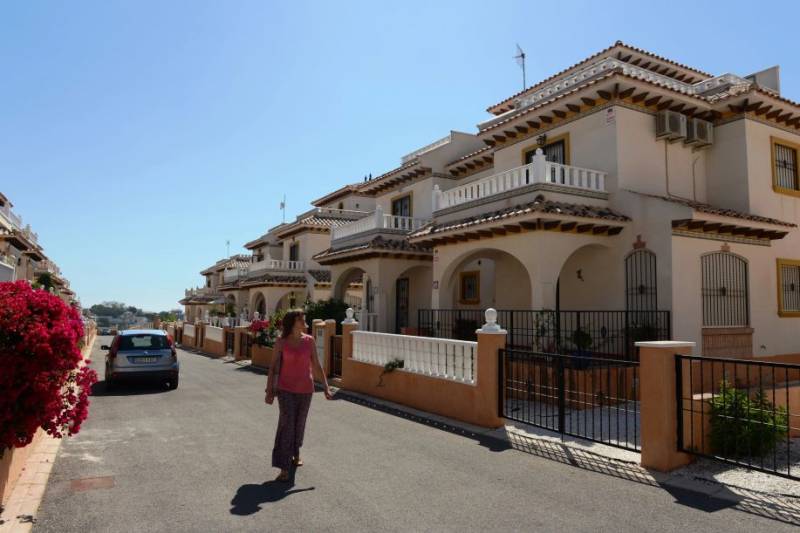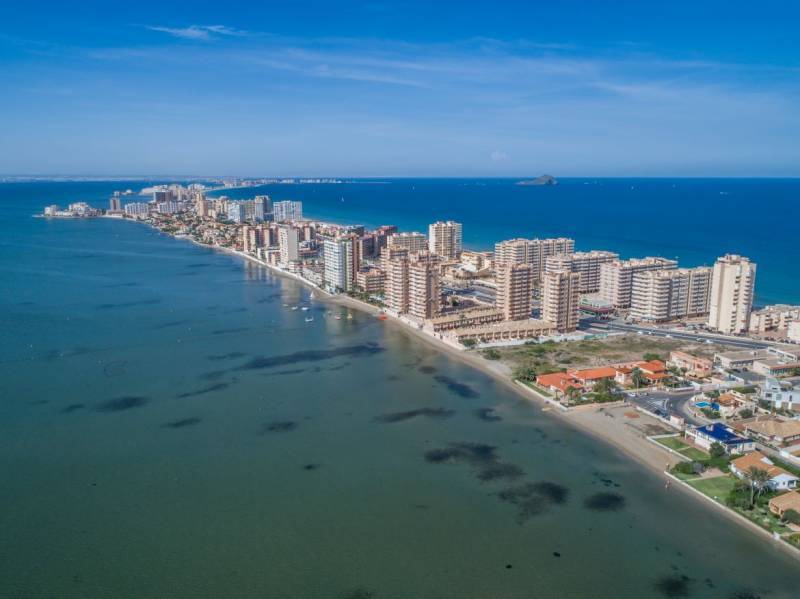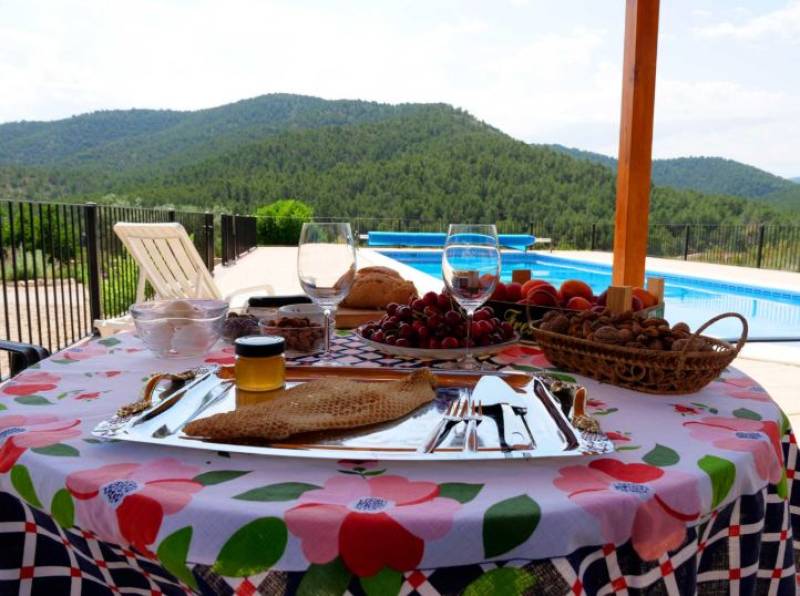- Region
- Vega baja
- Marina Alta
- Marina Baixa
- Alicante
- Baix Vinalopo
- Alto & Mitja Vinalopo
-
ALL TOWNS
- ALICANTE TOWNS
- Albatera
- Alfaz Del Pi
- Alicante City
- Alcoy
- Almoradi
- Benitatxell
- Bigastro
- Benferri
- Benidorm
- Calosa de Segura
- Calpe
- Catral
- Costa Blanca
- Cox
- Daya Vieja
- Denia
- Elche
- Elda
- Granja de Rocamora
- Guardamar del Segura
- Jacarilla
- Los Montesinos
- Orihuela
- Pedreguer
- Pilar de Horadada
- Playa Flamenca
- Quesada
- Rafal
- Redovan
- Rojales
- San Isidro
- Torrevieja
- Comunidad Valenciana
Date Published: 15/07/2025
An uneasy calm returns to Torre Pacheco as the Murcia town becomes Spain's epicentre of the migration debate
Arrests have been made of agitators and the three people accused of the assault that ignited the disturbances
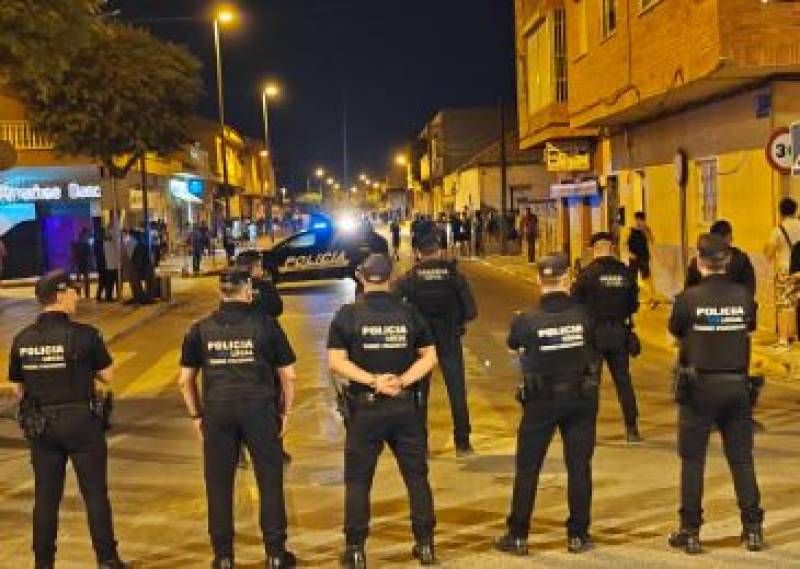
Torre Pacheco, a town of over just 40,000 residents in Murcia’s Mar Menor area, remains tense yet outwardly calm following several days of violent disturbances that have brought national and international attention to the area.
The recent aggression against a 68-year-old resident, attributed to three North African youths, has sparked not only police action but also a wave of misinformation, social unrest and renewed political division over immigration. The three suspects in the case have all now been apprehended, but the trouble on the streets and in people’s hearts is far from over.
Although streets are now quiet during the day, residents continue to express fear of what nightfall may bring. Local businesses have reopened, including many owned by Moroccan nationals in the worst affected neighbourhood of San Antonio, and public life continues under a thin veil of normality. Yet for many, the trauma is fresh, and the peace feels fragile.
The Town Hall has responded by stepping up coordination with regional and national authorities. Town Mayor Pedro Ángel Roca met with government delegate Mariola Guevara to discuss increased security, and the number of police officers deployed on the streets has risen to 90 in response to renewed calls for violence circulating on social media.
The unrest has exposed the vulnerability felt by residents of foreign origin, particularly the town’s sizeable North African community.
Hanza, a Moroccan resident who has lived in Torre Pacheco since childhood, spoke to the media with a message of concern: “The calm of the day begins to be ruined when it gets dark.”
Like many others, he claims that the recent violence was not instigated by locals, but rather “Nazi groups mobilised from outside the Region of Murcia,” who targeted the town under the guise of protecting public safety.
Abdel, another young Moroccan, said his family no longer feels safe walking the streets. “You can’t go out,” he said, lamenting the limited police presence during the early days of the disturbances.
His words were echoed by self-employed resident Abdelaziz, who has lived in the town for over a decade. “We are afraid for our children, our elders,” he said. “This should not be happening in a democratic country.”
Fake news and the fuel of social media
The anxiety in Torre Pacheco was worsened by the spread of a viral video purporting to show the assault on Domingo, the 68-year-old Spanish man attacked while walking. The footage, widely circulated via WhatsApp and social networks, was later revealed to be a hoax. It actually depicted a separate homophobic attack on a homeless man that happened in Almería back in May.
José, the real victim who appeared in the video, has since come forward publicly to clarify the misunderstanding. In a visibly emotional Instagram post, he confirmed, “I’m the one who got hit,” explaining that he only discovered the video’s circulation after his niece showed it to him online. His plea was heartfelt: “Justice for the man in Murcia and for me.”
Domingo himself confirmed to local press that the video does not show his attack and has informed the Civil Guard accordingly. Yet by the time the truth emerged, the damage had been done. The fake footage had already inflamed tensions and fuelled street protests, which in turn escalated into clashes involving outsiders with radical ideologies.
The events in Torre Pacheco have become a flashpoint in Spain’s national immigration debate. Spanish President Pedro Sánchez issued a strong statement, declaring, “Racism is incompatible with democracy” and calling for unity and action against hate, while regional Murcia president has asked the government to supply “all necessary resources to help restore normalcy and end the violence.”
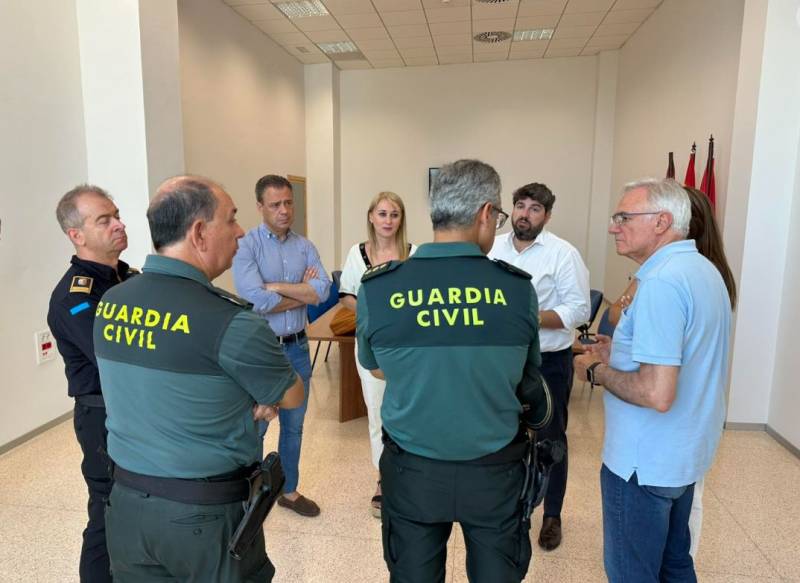
However, the opposition party Vox has responded in a markedly different tone. During a visit to the town, regional leader José Ángel Antelo called for the mass deportation of all illegal immigrants, remarks that have since prompted legal action from the PSOE and Podemos, alleging incitement to hatred.
Vox has denied responsibility for the violence but has stopped short of condemning the street-level retaliation, insisting instead that the unrest is “a consequence of illegal immigration”.
Andrés Ballesteros, a political scientist at the Murcia Region’s College of Political Science and Sociology, sees the situation as a textbook case of polarisation.
“This confirms what many polls have warned about: insecurity and immigration are two issues increasingly seen as major concerns by citizens,” he explained. “Political parties quickly seize on these issues to mobilise their base and push their agenda.”
He notes that the clash of ideologies, with conservative groups framing immigration as a threat and progressives focusing on anti-racism, leaves little room for nuance.
“There are hardly any positions in between,” he says. “People seek information that confirms their pre-existing beliefs. It’s an echo chamber.”
Torre Pacheco’s political landscape reflects the tensions. In the last general elections, Vox was the second most supported party after the PP.
Despite a drop from its 2019 high, the party continues to draw significant backing in this traditionally conservative town, which has been shaped in part by its economic reliance on agriculture and a high proportion of foreign labour.
This demographic makeup, while vital to the region’s economy, has become central to the right’s narrative about cultural and social cohesion. Yet many residents, regardless of background, have called not for division, but for calm, understanding and adequate policing to ensure everyone’s safety.
The mayor and local authorities face a delicate challenge: maintaining public order without fuelling political rhetoric or deepening mistrust between communities. For now, police patrols and political statements have replaced street clashes, but underlying tensions remain.
Torre Pacheco may no longer be in the headlines within days, but the debates sparked here – about coexistence and the continuing entry f illegal migrants into Spain and Europe – are unlikely to fade any time soon.
The challenge now is to prevent this town from becoming a symbol not of conflict, but of how difficult yet vital peaceful cohabitation is in modern Spain.
Images: Policía Local de Torre Pacheco / Ayuntamiento de Torre Pacheco
Contact Murcia Today: Editorial 000 000 000 /
Office 000 000 000














